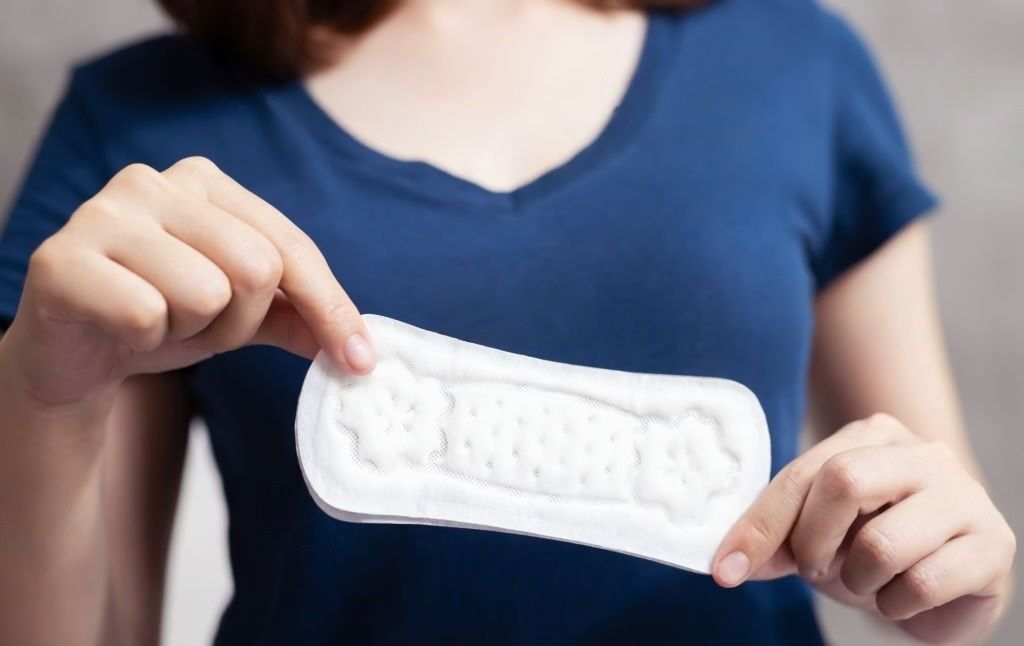Dietary Changes for Lighter Periods: Do They Really Work?
Following a balanced diet full of important nutrients is definitely good for your overall health, even when you're on your period.

For centuries, menstruation has been an integral part of the female reproductive cycle, marking a period of physiological change and renewal. While the experience of menstruation varies greatly from person to person, many women seek ways to alleviate discomfort and make their periods more manageable. In recent years, dietary changes have gained attention as potential tools to influence the menstrual cycle, with claims that certain foods can lead to lighter and less painful periods. This blog delves into the scientific research behind these claims, exploring whether dietary modifications truly have the power to impact the heaviness of menstrual flow.
Understanding Menstruation
Before delving into the potential effects of dietary changes on menstrual flow, it's important to understand the menstrual cycle itself. Menstruation is the result of complex hormonal interactions that lead to the shedding of the uterine lining. The key players in this process are estrogen and progesterone. These hormones are responsible for regulating the growth of the uterine lining during the first half of the menstrual cycle, and their decline triggers the shedding of this lining during menstruation.
The Role of Nutrition:
Nutrition plays a vital role in maintaining hormonal balance and overall health, but can it truly impact the heaviness of menstrual flow? Some dietary changes are often suggested to influence menstrual flow:
1.Anti-inflammatory Foods: The suggestion is that consuming foods rich in anti-inflammatory compounds, such as omega-3 fatty acids found in fatty fish, flaxseeds, and walnuts, might help reduce menstrual pain and inflammation. Inflammation is associated with increased prostaglandin production, which can contribute to heavier periods.
Omega-3 fatty acids, abundant in fatty fish and flaxseeds, possess anti-inflammatory properties. These compounds can potentially reduce the production of pro-inflammatory molecules called cytokines, which are associated with pain and inflammation during menstruation.
2. Iron-Rich Foods: Adequate iron intake is crucial for maintaining overall health and preventing anemia, especially during menstruation when blood loss occurs. Including iron-rich foods like lean meats, leafy greens, and legumes can support healthy blood production.
Iron is an essential nutrient for the formation of hemoglobin, the molecule responsible for carrying oxygen in the blood. Consuming adequate iron supports healthy blood production and can prevent anemia, a condition characterized by low red blood cell count and fatigue.
3. Hydration: Staying hydrated is often recommended to promote overall health, but can it impact menstrual flow? Dehydration can lead to thicker blood, potentially contributing to heavier periods.
Water is vital for maintaining blood volume and fluidity. Dehydration can lead to increased blood viscosity, potentially affecting blood flow during menstruation. Staying hydrated helps maintain the optimal consistency of blood, contributing to overall well-being.
SUMMARY
In the realm of menstrual health, dietary changes are often proposed as a means to achieve lighter periods. While the logic behind some of these suggestions is sound, the scientific research supporting their effectiveness is currently lacking. It's important to approach such claims with a critical perspective and consider that individual responses to dietary changes may vary. Maintaining a balanced diet rich in nutrients is undoubtedly beneficial for overall health, including during menstruation, but expecting dramatic changes in menstrual flow solely based on dietary modifications might be unrealistic.
Jayti Shah is a Clinical Nutritionist with a master's degree in Clinical Nutrition and Dietetics. She is a member of the Indian Dietetic Association (IDA). Over the last 9 years, she has helped 400 clients in their clinical and weight loss journeys. She works with SocialBoat as a nutrition consultant.
At SocialBoat, we offer custom diet plans and guided workouts to help you achieve your goals in a 360-degree approach. Our gamified experience ensures that you don’t find workouts boring and we reward you for being consistent with your efforts.

REFERENCES
- Prior, J. C., Naess, M., & Langhammer, A. (2018). "The Role of Nutritional Supplements in the Prevention and Treatment of Dysmenorrhea." Nutrients, 10(5), 573.
- Chiaffarino, F., Parazzini, F., & Chatenoud, L. (2004). "Diet and Uterine Fibroids." Obstetrics & Gynecology, 104(5 Pt 1), 981-986.
- Bao, W., Chavarro, J. E., Tobias, D. K., & Rich-Edwards, J. W. (2018). "Physical Activity, Dietary Flavonoids, and Ovulatory Disorder Infertility." American Journal of Obstetrics & Gynecology, 219(3), 279.e1-279.e12.
- Bahrami, A., Avan, A., Sadeghnia, H. R., & Esmaeili, S. (2019). "Diet and Menstrual Pain: What We Need to Know." Journal of Pediatric and Adolescent Gynecology, 32(6), 597-598.
